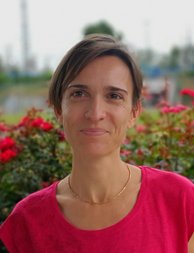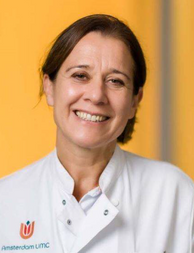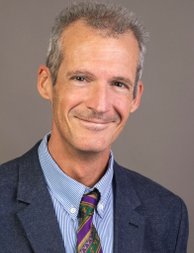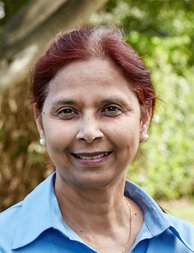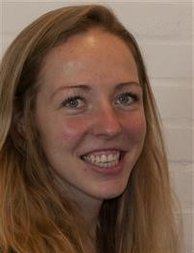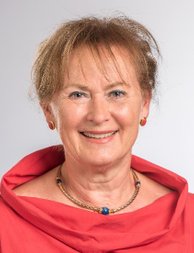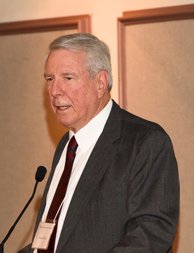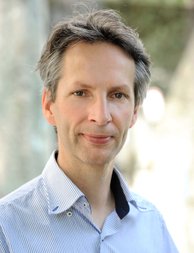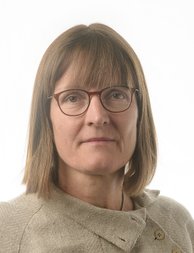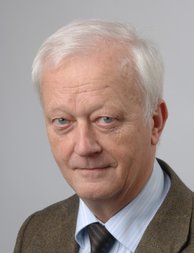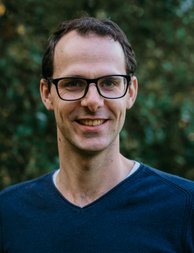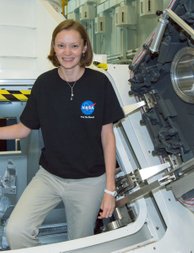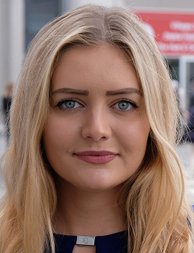SPEAKERS
Invited speakers for IVC 2023.
Agnès de Sesmaisons Lecarré is a senior Scientific Officer within the Nutrition and Food Innovation Unit of the European Food Safety Authority (EFSA) based in Parma, Italy.
She had her master’s degree in life sciences and human nutrition from AgroParisTech in Paris, France. She joined the EFSA’s nutrition team in 2010, where she first worked on the evaluation of novel foods and health claims. In 2014, she undertook the task of supporting the work of the expert Panel on Nutrition, Novel Foods and Food Allergens (NDA) regarding the assessment of dietary reference values for vitamins and minerals. She is currently coordinating EFSA’s review of the tolerable upper intake levels for vitamins and minerals commissioned by the European Commission.
She has contributed to writing more than 50 EFSA scientific opinions and several methodological guidance documents.
Dr Angelique de Man is an intensivist at Amsterdam UMC in the Netherlands. She has extensive experience in clinical and, since she is also a medical biologist, also in translational research. Her domains of expertise in research comprise hyperoxia, cardiac arrest, vitamin C and micronutrients in critical care setting.
She was coauthor to the micronutrient guidelines (doi: 10.1016/j.clnu.2022.02.015) and is currently leader of the micronutrients working group of the ESICM. Furthermore, she is a member of the ESPEN special interest group for micronutrients. This year, she will finalize the VITaCCA trial, an RCT investigating the effect of 2 different doses (3 and 10 g per day) of intravenously administered vitamin C versus placebo in 270 post cardiac arrest patient.
In addition, she is currently working on the development of intracellular measurements of micronutrients in collaboration with the Reinier de Graaf Laboratory in the Netherlands.
Ellen Trolle, Senior researcher, National Food institute, DTU
Main research areas are dietary habits, dietary assessment methods, infant and child nutrition and development of scientific basis food based dietary guidelines (FBDG), included modelling of food and nutrient intake related to meals in public services and total diet food pattern, nutrient recommendations, and sustainability of food consumption.
Research also include organic procurement and intervention studies e.g. regarding health promotion in school children and reduction of salt intake.
Has been involved for more than 20 years in conducting the National dietary surveys. Expertise in science-based consultancy to authorities on nutritional questions.
Francesco Visioli earned a degree in Pharmacy and Pharmaceutical Chemistry from the University of Milan and a PhD in Biotechnology from the University of Brescia (based on work performed at the Louisiana State University Neuroscience Center). After being Full Professor of physiopathology at the Université Paris 6 “Pierre et Marie Curie”, where he directed the “Micronutrients and cardiovascular disease” unit, and being Senior Investigator at the Madrid Institute for Advanced Studies (IMDEA)-Food he is now Professor of human nutrition at the University of Padua, Italy. Formerly involved in neurochemistry, Dr. Visioli’s research currently concerns essential fatty acids, namely those of the omega 3 series, and polyphenols, as related to atherosclerosis and cardiovascular disease. In particular, the Visioli group discovered the biological and pharmacological properties of phenolic compounds from olive oil, including hydroxytyrosol. In addition, Dr. Visioli is studying some bioactive components of plant foods, including lycopene from tomato and biophenols from wild greens. His research ranges from in vitro studies of bioactivity (test tubes, cell cultures) to in vivo tests, performed on laboratory animals and/or humans. Nutrigenomics and precision nutrition are current topics of Francesco Visioli's research.
Dr Visioli has a publication record of over 400 papers and book chapters, which have been cited over 17,000 times (H-index: 72 according to Scopus). He gave invited lectures in over 120 meetings.
Dr. Visioli was a member of the Board of Directors of the International Society for the Study of Fatty Acids and Lipids (ISSFAL). Currently, Dr. Visioli is the Editor-in-Chief of PharmaNutrition, Associate Editor of Prostaglandins, Leukotrienes and Essential Fatty Acids, in addition to being a member of the Editorial Board of several other journals. Currently, Dr. Visioli is the leader of the “Fats and Human Health” division of Eurofed Lipid and was a member of the EFSA GMO Panel. According to the Stanford ranking he is the top Italian researcher in Nutrition & Dietetics n(c-score: 4.02).
Full profile at: orcid.org/0000-0002-1756-1723
Professor Jayashree Arcot is currently leading the Food and Health group in the area of Nutrient bioavailability studies.
She has over two decades of experience in using high-end chromatographic and mass spectrometric techniques for accurate quantification of vitamins and bioactives in foods; bioaccessbility using 2D cell culture models and human bioavailability studies.
Her expertise is in the area of folate and Vitamin B12 quantification and bioaccessibility studies.
She is currently collaborating with cancer cell biologists on using 3D models (intestinal and liver organoids) for studying bioaccessibility and potentially bioavailability of vitamins and bioactives in foods.
Leon Schurgers is professor of biochemistry of vascular calcification and vice chair of the department of biochemistry, which is part of the Cardiovascular Research Institute CARIM, Maastricht University. He also is chair of the Stem Cell Reseach University Maastricht (SCRUM). His work includes molecular biology, biochemistry, experimental animal, pharmacology, and clinical studies in the fields of cardiovascular disease. He is leading the scientific part on vascular smooth muscle cells and iPSCs, as well as the role of vitamin K-metabolism in health and vascular disease.
His project line aims to elucidate the molecular mechanisms of vascular smooth muscle cells (SMCs) by which vascular calcification is initiated and propagated: key cellular events include phenotypic switching and formation of extracellular vesicles contributing to the initiation and progression of calcification. The regulation of vitamin K-dependent protein biosynthesis, its sites of action and its putative relationship with calcification is insufficient to understand the pathogenesis of vascular calcification at a level that allows the development of novel diagnostic tools and therapeutic strategies.
Importantly, these findings will help to understand the paradoxal observation that patients with low vitamin K-status during oral anticoagulant treatment develop extensive vascular calcification and might provide new insights in prognostic and preventive measures.
Luca Tiano
Luca Tiano is Professor in Biochemistry Polytechnic University of Marche, Ancona, Italy, Since 1997, he has been involved in research on oxidative stress and the use of antioxidants in cellular models or in vivo both under physiological conditions or in pathologies associated with an altered redox status.
The main research focus of the laboratory he coordinates concerns the health effects of Coenzyme Q10 and other lipophilic vitamins and cofactors in health and disease, with a special focus on cardiovascular health, muscle function and sarcopenia, skin ageing and photoaging. Research activities include the bioavailability and biological effects of vitamins and antioxidants in nutritional supplements and functional foods. His research contributed to elucidate the role of Coenzyme Q10 in improving endothelial function in primary and secondary cardiovascular prevention.
Prof. Tiano authored over 160 papers on international peer reviewed journals (Hi 33). Board member of the European Society of Comparative Biochemistry and Physiology and Executive Committee Member of the International Coenzyme Q10 Association; Founder of the academic Spin Off company of the Polytechnic University of Marche QFarm s.r.l. Innovative startup specialized in the development of functional food and functional feed for human and animal wellbeing.
Marie Bagge Jensen
Marie Bagge Jensen is a postdoctoral fellow in the research group Bioactives – analysis and application at the national food institute at the technical university of Denmark. Her main focus in her research is vitamin K with focus on both the analytical method and the bioaccessibility and bioavailability.
She is currently expanding her field of research to also include other vitamins and minerals and in vivo models to assess the bioaccessibility and bioavailability.
Marie Bagge Jensen conducted her PhD studies at the research group Bioactives – analysis and application as well were she developed and validated an analytical method for vitamin K and studied the in vitro bioaccessibility and absorption of vitamin K.
Mette M Berger, Prof. Hon. is an Intensive care physician from the Lausanne University Hospital and specialized in burn care and nutrition. She has been responsible for the Lausanne burn center for 30 years
She received her M.D. degree from Lausanne School of Medicine (Switzerland), and her medical Ph.D from the University of Umeå (Sweden). After a first specialty in Anesthesiology (Lausanne University), she became an intensive care specialist. She also trained as a nutritionist in Nancy (France) and acquired an MBA in health economics.
Prof. Berger has held positions as president and treasurer of the Swiss Society of Clinical Nutrition (SSNC), is member of the ESPEN-ICU guidelines group, Honorary member of European Society of Intensive Care Medicine (ESICM and SSNC), and chairs the ESPEN guidelines and special interest group for micronutrients. Prof. Berger has authored over 280 publications on nutritional therapy of the critically ill, burn and trauma care and micronutrients. She is also teacher for the LLL-ESPEN training program and lecturing worldwide in 5 languages about individualized nutrition therapy, metabolism and micronutrition.
She has contributed to develop the concept of maximal tolerable energy deficit, promoting the use of indirect calorimetry and computerized information systems to monitor nutritional therapy. Committed to education, she has published multiple training documents.
Michael Green received a B.A. in Physiology (1967) and a Ph.D. in Nutritional Sciences (1973) from the University of California, Berkeley, before doing post-doctoral research at Cornell University. In 1975, he joined the faculty in nutrition at Penn State University, spending the next 42 years teaching at the undergraduate and graduate level; doing research and mentoring students and junior colleagues; and serving several times as department chair. He retired in 2017 but, as professor emeritus, has maintained an active and productive research program.
Following an early interest in kinetics, Green has become one of a small group of nutrition scientists who have been trained in and extensively use the Simulation, Analysis and Modeling software (WinSAAM) to describe and quantitate the kinetics and metabolism of biologically interesting substances. At Penn State, his research focused on applying model-based compartmental analysis to advance knowledge related to vitamin A status and metabolism in various nutritional and physiological states in both animal models and humans, and he has collaborated with others to apply modeling to other systems. During his academic career, he was a visiting scientist/scholar at several other institutions including NIH’s Laboratory for Mathematical Biology, University of Oslo’s Institute for Nutrition Research (Fulbright Research Scholar), University of Pennsylvania’s School of Veterinary Medicine, Karolinska Institutet’s Institute for Environmental Medicine, and Newcastle University’s School of Agriculture, Food and Rural Development. Currently, he is collaborating with colleagues at the University of California, Davis; Universidad de Sonora, Sonora, Mexico; and Wageningen University & Research, Division of Human Nutrition and Health, Wageningen, Netherlands, and he has been/is involved in multi-site international studies on vitamin A status funded by the Gates Foundation and the International Atomic Energy Agency. Over the course of his career, Green was invited to make presentations at numerous national and international conferences and was honored to present the James Allen Olson memorial lecture for the American Society for Nutrition’s Carotenoids and Retinoids Interactive Group in 2022. Green is lead- or co-author on >100 peer-reviewed publications, more than 30 of which were published after his formal retirement and including one non-modeling article which argued that, contrary to conventional wisdom, fatty acids are indeed a gluconeogenic precursor. He continues to share his modeling expertise with younger colleagues and students through a weekly online “modeling club.”
Dr. Green’s presentation at IVC will focus on how model-based compartmental analysis is being used to study the movement (kinetics) of vitamin A and provitamin A-carotenoids in real and theoretical humans.
Prof. Dr. Michael Rychlik is heading the Chair of Analytical Food Chemistry at the Technical University of Munich, Germany (TUM).
He graduated in food chemistry at the University of Kaiserslautern in 1988.
His PhD studies on the flavour of bread were completed in 1996 and he was appointed full professor at the TUM in 2010. In 2015 he served as a Visiting Professor at the University of Queensland (UQ), Australia and in 2016 he was appointed an Honorary Professor at the latter University. In the last years he was also active as a Visiting Professor in 2016 at the National University of Singapore (NUS) and is also teaching since 2018 at the University of Hong Kong and since 2020 at the University of Chemistry and Technology Prague.
His group has been working for 20 years in the field of developing analytical methods for bioactive food components, in particular for vitamins, mycotoxins, odorants and lipids. Since 2014 he serves as the Head of the “Committee on Contaminants in the Food Chain” at the Federal Institute for Risk Assessment, Berlin, Germany.
Nanna Roos
Nanna Roos is Associated Professor in human nutrition at University of Copenhagen, with a long-term research focus on the role of animal-source foods for enhancing dietary quality - including as sources of micronutrients - in diets in populations vulnerable to undernutrition in Asia and Africa.
The early research documented that certain small indigenous fish in Bangladesh were particularly rich in vitamin A, which could enrich the nutritional outputs of local fish farms. In Cambodia, NR investigated the use of locally processed small fish for developing processed food products for the prevention and treatment of undernutrition in infants and young children. Currently, NR is leading research in Bangladesh focusing on understanding the linkages between the health and nutrition of young women - including micronutrient status - and a complex coastal aquatic food environment formed around the production of high-value shrimp for export. NR is engaged in the agenda about dietary transition to more sustainable diets by focusing research on edible insects as alternative animal protein sources.
Roger Bouillon, narrative bibliography
Roger Bouillon is professor (emeritus since 2010) in internal medicine (endocrinology) at the University and University Hospitals of the Catholic University of Leuven (KU Leuven) in Belgium.
He obtained his MD degree from the KU Leuven in 1968 and a PhD degree in 1977.
He has been chair of the clinical department of endocrinology of the University Hospitals of the KU Leuven and of the Laboratory of Experimental Medicine and Endocrinology till 2009 (followed by obligatory “emeritus status”). He now has the “active” emeritus status in his university. In these functions he has combined a clinical appointment with basic, translational and clinical research, fortunately thanks to excellent teams in the clinic and in the laboratory (including several of his MD/PhD students). He has been president of several international professional [founding member and later President of the European Board of Endocrinology (UEMS 1988-2002)] organizations, and of several major international science organizations (including presidency of the “International Bone and Mineral Society (IBMS)”. He has been Vice President for Research in his university (1995-2005) and member of the Board of Directors of this University and its University Hospitals (Gasthuisberg). Together with AW Norman, he co-organized during about 30 yrs. the VITAMIN D workshops, alternatively in North America and Europe. He is a member of the Royal Academy of Medicine (Belgium) and a Fellow of the Royal College of Physicians (London).
He is coauthor of more than 800 peer reviewed articles that generated more than 45,000 ISI or Scopus citations and an h-index of 108 (as of January 2022). Endocrinology in general and hormonal regulation of bone metabolism and vitamin D remained the primary focus of his research although the laboratory of endocrinology and endocrine clinic is/was also involved in many other endocrine diseases, including diabetes, endocrinology of intensive care patients.
Dr. Sander Biesbroek is an Assistant Professor at the Division of Human Nutrition and Health at Wageningen University and Research. He started as a junior researcher at the Dutch National Institute for Public Health and the Environment (RIVM) working on dietary patterns and associations with non-communicable diseases. This was followed by a PhD position at both the RIVM and Utrecht University investigating co-benefits and trade-offs in healthy and sustainable diets in the Netherlands, mostly using cohort studies.
He obtained his PhD degree in 2019 and joined the group of prof.dr. Pieter van ‘t Veer as a postdoc on healthy and sustainable diets.
The work now encompasses both European projects such as Giant Leaps, as well as several Dutch, Chinese, and Vietnamese projects. His group focusses on diet models that take into account increasingly more indicators of diet quality, health, protein quality, acceptability and food diversity.
Sara R. Zwart, Ph.D.
Dr. Zwart is the DeputyManager for Nutritional Biochemistry at the NASA Johnson Space Center, a labshe joined in 2003 as a postdoctoral fellow. Dr. Zwart received a BS inBiological Sciences from the University of Notre Dame, and a PhD in NutritionalSciences from the University of Florida.
The NutritionalBiochemistry Laboratory is charged with optimizing nutrition to improveastronaut health and safety on extended-duration space missions. To that end, operationalactivities include evaluation of crew nutritional status before, during, andafter flight, as well as conducting research to better understand the role ofnutrition in human health during exposure to microgravity. Dr. Zwart hasresearched effects of spaceflight on bone and muscle loss, iron metabolism, andthe role of the one-carbon pathway in ocular changes observed in someastronauts. She has also led research efforts to understand the role ofnutrition in ground-based analog studies used to simulate aspects of space travel– including rotating cell culture, long-duration bed rest, undersea missions, Antarcticwinters, and numerous chamber studies.
Selma Hasific, Medical doctor, PhD student
Medical doctor Selma Hasific graduated from the University of Southern Denmark in June 2019. During her medical studies, she worked on a number of projects in the field of cardiology and authored articles about the association between vitamin K antagonists and coronary artery – and aortic valve calcification. After her internship, she started specialization at the Department of Cardiology at Odense University Hospital (OUH), Denmark.
In 2021, she decided to continue her research career fulltime with a PhD at the same department. Her current project focuses on the subclinical and clinical effects of vitamin K2 in coronary artery disease. Together with PI Professor Axel Diederichsen, she is working on multicenter randomized controlled trials investigating the effects of high dose vitamin K2 and D on vascular disease. On the other hand, she is also investigating effects of vitamin K antagonists on calcifications. Her work is primarily based on cardiac CT investigations and looking into the development of different plaque characteristics. She has a strong collaboration with Professor Damini Dey, Director of the AutoPlaque® software and has been a visiting scientist at the Dey Lab, Cedars Sinai Medical Center, Los Angeles, during 2022.
With her interests in coronary artery disease characterization and the effects of the vitamin K metabolism, she aims for a better understanding of prognostics and opportunities for prevention.
Yasmine J. Liu, Ph.D.
Dr. Liu is a postdoctoral fellow in the group of Prof. Johan Auwerx at École polytechnique fédérale de Lausanne (EPFL, Switzerland). Dr. Liu received a M.S. in Beijing Normal University, China in Biological Sciences, and a Ph.D. in University of Amsterdam (UvA), Amsterdam in Biomedical Sciences.
The Auwerx lab has been focused on the mapping of signaling networks and pathways that govern mitochondrial function and as such regulate organismal metabolism and aging. Particularly, the work from Auwerx team contributed to transforming NAD+ from its classic function as a cofactor for redox reactions into active signaling molecule that regulate mitochondrial function and metabolism. These studies also indicated that replenishing cellular NAD+ stores is an effective strategy to treat diseases that are characterized by defective NAD+ homeostasis and to enhance health- and lifespan. After joining the Auwerx team in 2021, Dr. Liu led the NAD+ research effort to compare the therapeutic efficacy of various NAD+ boosters in NAFLD/NASH. In a mouse model with high relevance to human NAFLD/NASH, she applied a robust clinical phenotyping scheme and a multi-layered omics approach. By leveraging the background of her and Auwerx lab in molecular biology, physiology, and bioinformatics, she aims to reveal the metabolic significance of various NAD+ boosters that engage different molecular targets and importantly to identify and prioritize the effective NAD+ therapy for human NAFLD/NASH.

